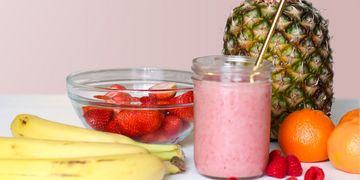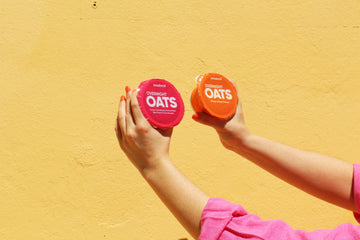For those who want to keep in shape and lead a healthy life, there is no other choice. It is essential to eat fruit. As we all know from childhood, fruits have high nutritional value, and help prevent diseases such as diabetes, obesity, and cardiovascular diseases. But even with so many good things, the Portuguese (the English? The Americans?) still don't go for it. At least, not in the quantity they should. According to the 2017 National Food and Physical Activity Survey, the amount of fruit per day consumed by the Portuguese is less than recommended. On average, we consume 7% less fruit than indicated on the food wheel.
It is neither make nor break. The balanced value is 20%.
According to studies, 20% of our daily energy intake should come from fruit. All told, this is more or less 3 or 5 portions, of 160 grams each.
Since we have to eat, let it be seasonal fruit. Its flavor and nutritional value are just right. But you don't have to eat the same thing until you get sick of it. Keep varying it. Including different fruits in your diet gives you a different kind of vitamins and nutrients. It's great to be full of vitamin C, but it's also good to have some of the others.
Fruit: the food ally
Those who eat fruit have a strong ally in the prevention of obesity, in the feeling of satiety, and besides, it is a low-fat food. But it doesn't stop there. In addition to these benefits, we can still talk about the contribution to reducing the risk of cardiovascular diseases, diabetes prevention, and several cancers. And for those who are already tired of so many advantages, let's take a break to catch our breath...
Are you ready? Because it still comes with the fact that it strengthens the immune system, regulates the intestinal flora and blood pressure, and even prevents diseases such as Alzheimer's. It sounds too good, but it is true. A small piece of fruit can make all the difference.
Are you rich? Or is it the fruit?
Actually, it's both. But let's be more technical.
Protein-rich fruit
You already know that without energy you are not going anywhere. So your body necessarily needs proteins. It is they that act on the structure and function of the cells, organs, and tissues of the human body, and they also contribute to the development of muscles, bones, skin, and hair. For more information, contact the main suppliers of protein: avocado, apricot, kiwi, and blackberries.
Iron-rich fruits
If there is one thing that cells like, it is iron. It is responsible for their growth, development, and functioning. If you have oxygen in your cells, it is thanks to iron, with a direct impact on your energy levels or fatigue! So be sure to thank your iron well. And the best way to say thank you is by eating more apples, bananas, oranges, avocados, strawberries, and blueberries.
Calcium-rich fruits
Strong Bones? Talk to calcium: the essential mineral for healthy bones. It contributes to the prevention of diseases like osteoporosis and is present in mango, kiwi, orange, and pear, as well as in grapes and blackberries.
Potassium-rich fruits
From heart to muscles, potassium is everywhere. It is involved in the regulation of heart rate and blood pressure, as well as in muscle contractions and nerve impulses in the body. And as if that weren't enough, it even eliminates toxins.
When it comes to potassium, the banana is the big star. Known for being one of the richest fruits in potassium, it contains 430 milligrams of potassium per 100 grams. But there are more: the avocado, the kiwi, the apricot, and the loquat.
Now you know why many athletes consume bananas before, during and after physical activity.
After this great fruit salad, you have all the bases for maintaining a healthy, rich, and diverse diet. Now there are no more excuses.





